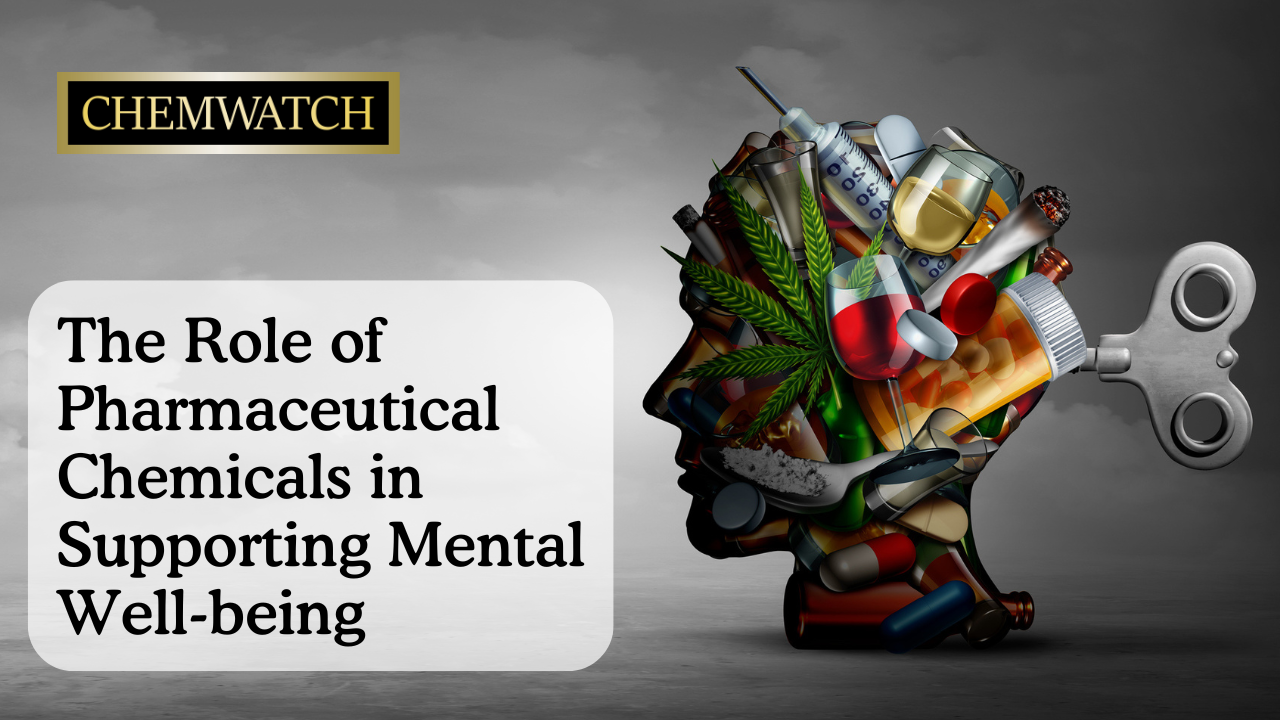
In an increasingly stressful world, mental health has become a crucial aspect of our overall well-being. From depression and anxiety to bipolar disorder and schizophrenia, millions of people are affected by mental health challenges. While therapy, lifestyle changes, and community support play pivotal roles in mental health management, pharmaceutical chemicals are at the forefront of improving mental well-being by targeting the root causes of these conditions.
In this blog, we’ll explore how pharmaceutical chemicals contribute to mental well-being and the science behind their therapeutic effects.

Our mood, emotions, and overall mental state are closely tied to chemicals in our brain called neurotransmitters. Some key neurotransmitters associated with mental health include:
Antidepressants are some of the most well-known pharmaceutical chemicals used in the treatment of mental health disorders, particularly depression. These drugs work by adjusting the levels of neurotransmitters in the brain to improve mood and mental clarity.
There are three major categories of antidepressants:
For individuals suffering from anxiety disorders, anxiolytic medications provide relief by reducing hyperactivity in the brain’s anxiety circuits. For example:
Benzodiazepines: drugs such as diazepam (Valium) and lorazepam (Ativan) are fast-acting and work by enhancing the effect of gamma-aminobutyric acid (GABA), a neurotransmitter that inhibits over-excitation in the brain. This can help reduce feelings of panic or fear in moments of acute stress.
Non-Benzodiazepine Anxiolytics: alternatives like buspirone target serotonin but without the sedative effects of benzodiazepines, making them suitable for long-term anxiety management.
For more severe mental health conditions such as schizophrenia and bipolar disorder, antipsychotic medications are crucial in helping stabilise mood, reduce hallucinations, and prevent delusions. These drugs primarily target dopamine and serotonin receptors to manage symptoms.
Typical Antipsychotics: older medications like haloperidol (Haldol) block dopamine receptors to reduce symptoms of psychosis.
Atypical Antipsychotics: newer drugs, such as olanzapine (Zyprexa) and risperidone (Risperdal), target both dopamine and serotonin to reduce symptoms with fewer side effects than typical antipsychotics.
The positive effects of these medications on mental well-being can be life-changing for many people. Some of the key benefits include:
While pharmaceutical chemicals can have a positive effect on mental well-being, it’s essential to use them responsibly under professional supervision. These drugs can have side effects, and finding the right medication and dosage often requires time and medical guidance. Regular consultations with a healthcare professional are necessary to monitor effectiveness and address any concerns.
Pharmaceutical chemicals play a vital role in the management of mental health disorders by addressing the underlying neurochemical imbalances. From antidepressants to anxiolytics and antipsychotics, these drugs provide much-needed relief, helping people regain control over their mental well-being. However, they are most effective when combined with therapy, support, and lifestyle changes.
By recognising the powerful impact of pharmaceutical chemicals on mental health, we can continue to advance treatments and improve the quality of life for millions of people worldwide.
Chemwatch produces Safety Data Sheets (SDS) to ensure all your users are aware of the hazards related to the chemicals used in products. If you want to know more about the environmental and health effects of chemicals, or how to minimise risk while working with chemicals, we’re here to help. We have tools to help you with mandatory reporting, as well as generating SDS and Risk Assessments. We also have a library of webinars covering global safety regulations, software training, accredited courses, and labelling requirements. For more information, Contact Us today!
Sources